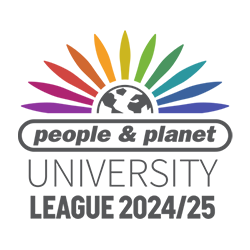-
Study
-
Undergraduate
- Search for a Course
- Undergraduate Open Day & Events
- Application Guides
- Northumbria University UCAS Exhibitions
- Foundation Years
- Undergraduate Fees & Funding
- School & College Outreach
- Continuing Professional Development
-
Postgraduate
- Postgraduate Study Degree
- Postgraduate Research Degrees
- Postgraduate Open Days and Events
- Postgraduate Fees & Funding
- Flexible Learning
- Thinking about a Masters?
- Continuing Professional Development
- Change Direction
-
Student Life
- The Hub - Student Blog
- Accommodation
- Life in Newcastle
- Support for Students
- Careers
- Information for Parents
- Students' Union
- Northumbria Sport
- Be Part of It
-
-
International
International
Northumbria’s global footprint touches every continent across the world, through our global partnerships across 17 institutions in 10 countries, to our 277,000 strong alumni community and 150 recruitment partners – we prepare our students for the challenges of tomorrow. Discover more about how to join Northumbria’s global family or our partnerships.
View our Global Footprint-
Applying to Northumbria
- European Union
- Our London Campus
- Northumbria Pathway
- International Events
- Entry Requirement and Education Country Agents
- Global Offices
-
Northumbria Language Centre
- Faculty Requirements
- Acceptable English Requirements
- Pre-sessional English Language and Study Skills
- Academic Language Skills Programmes (ALS)
-
International Fees, Funding & Scholarships
- International Undergraduate Fees
- International Undergraduate Funding
- International Masters Fees
- International Masters Funding
- International Postgraduate Research Fees
- International Postgraduate Research Funding
- International Money Matters
-
Life at Northumbria
- International student support
- Careers
-
International Mobility
- Current Northumbria Students
- Incoming Exchange Students
-
-
Business
Business
The world is changing faster than ever before. The future is there to be won by organisations who find ways to turn today's possibilities into tomorrows competitive edge. In a connected world, collaboration can be the key to success.
More on our Business Services -
Research
Research
Northumbria is a research-rich, business-focused, professional university with a global reputation for academic quality. We conduct ground-breaking research that is responsive to the science & technology, health & well being, economic and social and arts & cultural needs for the communities
Discover more about our Research -
About Us
-
About Northumbria
- Our Strategy
- Our Staff
- Place and Partnerships
- Student Profiles
- Alumni Profiles
- Leadership & Governance
- Academic Departments
- University Services
- History of Northumbria
- Contact us
- Online Shop
-
-
Alumni
Alumni
Northumbria University is renowned for the calibre of its business-ready graduates. Our alumni network has over 246,000 graduates based in 178 countries worldwide in a range of sectors, our alumni are making a real impact on the world.
Our Alumni - Work For Us
What will I learn on this module?
On this module you will explore the following topics:
• Educational inclusion.
• International perspectives in education.
• UN Sustainable development goal 4
• Policy development in education
• Accountability structures
• Beliefs, Cultures and Values
How will I learn on this module?
Your learning in this module will include a wide range of strategies to ensure a variety of experience. You will attend lectures and seminars which will provide you with theoretical, anecdotal and case study material to stimulate discussion and debate. You will be supported in engaging in the critical evaluation of education systems against global trends in order to develop as part of a global community of practice.
How will I be supported academically on this module?
You will be supported through a combination of online resources and online group tutorials. Opportunities to share and explore experiences and learning with fellow students will form an important part of the teaching and learning process. You will engage in small group learning, presentations, independent and guided study. Your module tutor will be accessible to you in person or through email, Blackboard or Teams. You will also be guided to other learning resources and support available through the university library.
What will I be expected to read on this module?
All modules at Northumbria include a range of reading materials that students are expected to engage with. Online reading lists (provided after enrolment) give you access to your reading material for your modules. The Library works in partnership with your module tutors to ensure you have access to the material that you need.
What will I be expected to achieve?
Knowledge & Understanding:
1. Critical understanding of legislation, values and principles that underpin the development of inclusive education curricula around the world.
2. Critical understanding the UN Sustainable development goal 4 and how it may influence the design and delivery of education programmes.
Intellectual / Professional skills & abilities:
1. Capability to identify and critically evaluate accountability structures that may impact inclusive practice within their profession and/or work role.
2. Ability to critically analyse, compare and contrast educational practice in one country against that of another within a given framework.
Personal Values Attributes (Global / Cultural awareness, Ethics, Curiosity) (PVA):
1. Enhance your communication skills through engagement in module activities, formative and summative assessment.
2. Develop an awareness of how beliefs, culture and values may impact on inclusive practice.
How will I be assessed?
You will receive both formative and summative feedback.
FORMATIVE ASSESSMENT
The formative processes will engage you in class discussions and mini presentations as well as feedback from your tutor on sections of your draft work before your summative submission.
SUMMATIVE ASSESSMENT
You will critically analyse educational inclusion in the UK, taking the UN Sustainable Development Goal 4 into consideration, and compare and contrast this provision with that of one other country in the world. 4500 words
MLOs
KU 1 and 2
IPSA 1 and 2
PVA. 1 and 2
Feedback:
You will receive written feedback and feed forward supporting future academic engagement, with a grade informed by the assessment criteria and the elaborated grade descriptor.
Pre-requisite(s)
None
Co-requisite(s)
None
Module abstract
The United Nations 2030 Agenda for Sustainable Development, ‘the world’s globally agreed plan for peace and prosperity for all on a healthy planet’ (UN, 2018, p.5), estimated that 1 billion people with disabilities continue to face significant challenges and barriers to full participation in society. This first report on the progress of the 2030 agenda highlights persistent stigma, negative attitudes, discrimination, misinformation and prejudice as impacting on all forms of accessibility for people living with disability. Goal 4 of the 17 Sustainable Development Goals (SDGs) places responsibility on Higher Education Institutions to design and deliver programmes that equip educators with skills, knowledge and practices that will ensure the protection of the planet and its future occupants. This aligns with the 1994 Salamanca Statement which stated that education systems and programmes should be inclusive in design and delivery. This module will equip you with the tools to stay abreast with local and international trends in education. The international perspective, will also prepare you for the diverse cohorts of students arising from increasing global migration, and give you an opportunity to develop as an international scholar and educator.
Course info
Credits 30
Level of Study Postgraduate
Mode of Study 20 months Full Time
Department Social Work, Education and Community Wellbeing
Location Coach Lane Campus, Northumbria University
City Newcastle
Start January 2026
All information is accurate at the time of sharing.
Full time Courses are primarily delivered via on-campus face to face learning but could include elements of online learning. Most courses run as planned and as promoted on our website and via our marketing materials, but if there are any substantial changes (as determined by the Competition and Markets Authority) to a course or there is the potential that course may be withdrawn, we will notify all affected applicants as soon as possible with advice and guidance regarding their options. It is also important to be aware that optional modules listed on course pages may be subject to change depending on uptake numbers each year.
Contact time is subject to increase or decrease in line with possible restrictions imposed by the government or the University in the interest of maintaining the health and safety and wellbeing of students, staff, and visitors if this is deemed necessary in future.
Useful Links
Find out about our distinctive approach at
www.northumbria.ac.uk/exp
Admissions Terms and Conditions
northumbria.ac.uk/terms
Fees and Funding
northumbria.ac.uk/fees
Admissions Policy
northumbria.ac.uk/adpolicy
Admissions Complaints Policy
northumbria.ac.uk/complaints














